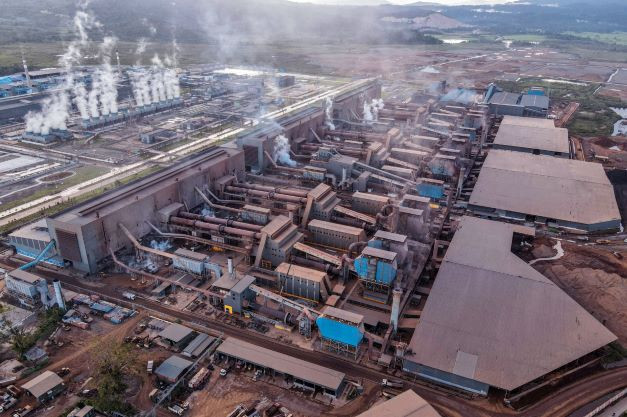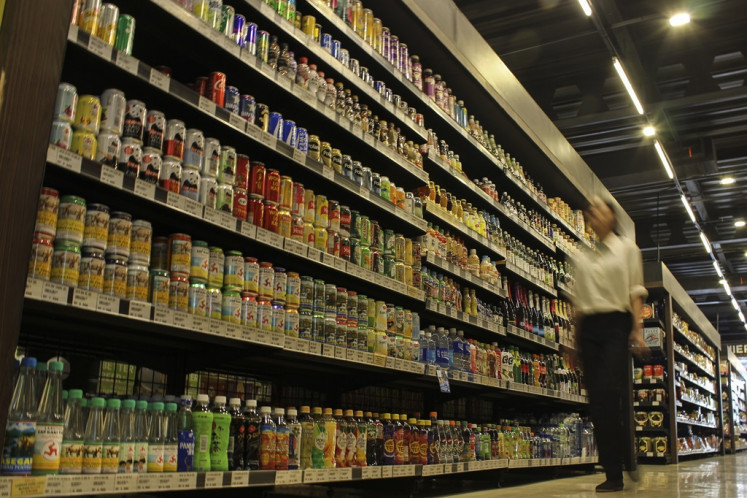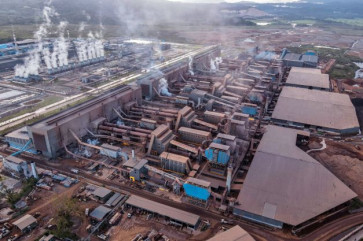Popular Reads
Top Results
Can't find what you're looking for?
View all search resultsPopular Reads
Top Results
Can't find what you're looking for?
View all search resultsIndonesian economy remains resilient amid the global shocks
Holding more than a fifth of global nickel reserves and as the third-largest source of cobalt, Indonesia will be the world’s leading EV battery industry.
Change text size
Gift Premium Articles
to Anyone
 Adding value: A nickel smelter operates at PT Virtue Dragon Nickel Industry (VDNI) in Konawe, Southeast Sulawesi, on Sept. 21. Indonesia has vowed to carry on its downstreaming program to add value to its nickel exports, despite its loss in a dispute over its ore-export ban heard at the World Trade Organization. (AFP/Andry Denisah)
Adding value: A nickel smelter operates at PT Virtue Dragon Nickel Industry (VDNI) in Konawe, Southeast Sulawesi, on Sept. 21. Indonesia has vowed to carry on its downstreaming program to add value to its nickel exports, despite its loss in a dispute over its ore-export ban heard at the World Trade Organization. (AFP/Andry Denisah)
There are rumors from the developed countries that a breeze of recession is coming. The inflation virus has infected the world, and shockingly, forced central banks all over the world to push the interest rate up. As a result, the world economy shrunk during the last months of 2022.
In the past year, global headline inflation has surged from 4.7 to 8.8 percent year-on-year (yoy), reaching the highest level since the late 2008 financial crisis. Energy prices were the main driver with skyrocketing oil and gas prices. Other drivers, such as supply-chain disruptions, clogged ports and food-supply shortages, which mainly are the collateral damages from the Russian-Ukraine war, have also contributed particularly in Europe and other emerging countries. There are signs that inflation appears to be abating in December, but it is unwise to expect a quick normalization in 2023, at least not in the early quarters.
The inflation virus has spread and forced central banks around the globe to tighten the monetary policy. Interest rates are higher across most of the richer countries than they have been for more than two decades. The fierce tightening of monetary policy was the trigger for much of the turbulence that rocked the financial industry in 2022.
Can we expect the rate to be lower in 2023 and ease the turbulence? Investors are betting on a shallower peak and continue to think that the first rate cut may come as soon as the summer. Whatever investors choose to believe, it is only wise to assume that the chaos of 2022 could well follow them in 2023.
In the midst of inflation infection and interest-rate shock, the world economy beats slower during the last months of 2022. The heartbeat of the economy may vary across countries and be determined by how well the central banks, economists and finance policymakers manage and foresee the behavior of their people to balance inflation and demand.
Increasing rate may be a textbook approach to lower inflation, with the expense of damping demand. But will inflation stay high as the economy slows?


















